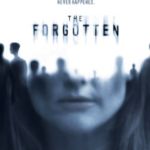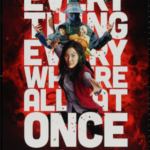Fahrenheit 451 (1966)
Clarisse: Is it true that a long time ago, firemen used to put out fires and not burn books?
Montag (fireman): Put fires out! Who told you that? …Oh, what a strange idea! Houses have always been fireproof.
This is the exactly backwards – and backward, too – world we see in Fahrenheit 451, the 1966 movie made by François Truffaut and based on the 1953 science fiction novel of the same name by Ray Bradbury. A totalitarian government hates independent thinking so much that for decades or longer it has banned the printed word. Ergo, no books allowed for anyone. The job of ferreting out and destroying any contraband books still around falls to the fire department; after all, who knows more about fire? The fire crews do their dirty work with grim purpose – and flame throwers.
https://youtu.be/x9iyKI2pJbE
The fire chief, known as the Captain (Cyril Cusack), is a sadist who mistreats his recruits and takes sick pleasure in burning books. “The books have nothing to say,” he claims. Novels make people wish for lives they can never have. Philosophers all say the same thing yet argue with each other. Books disturb people. On one book-burning run, the Captain explains his raison d’être: “You see, it’s… it’s no good, Montag. We’ve all got to be alike. The only way to be happy is for everyone to be made equal.”
https://youtu.be/ZaLJ10v4xUA
Montag (Oskar Werner) is in the Captain’s crew. He performs his book-burning well; he handles a mean flame thrower and is up for a promotion. He gives his job little thought; things have always been this way. He can sound like his boss, though; he says, “Books make people unhappy. They make them anti-social.”
But…people still have minds and souls and consciences. They still love freedom. And some brave hearts will never submit to tyranny. So, no matter the odds, no matter the risks and the penalties, they preserve their books, squirreling them away in the nooks and crannies and secret hiding places of their homes. Their biggest hazard is the snitches – every society has them – who anonymously tip off the fire crews about them.
Montag’s neighbor Clarisse (Julie Christie), 20, introduces herself to him on a commuter monorail, finds out what he does, and asks him if he ever reads any of the books he’s about to burn. “Why should I?” he replies. But her next question is, “Are you happy?” – and that starts him thinking. Soon he brings a book home from one of his raids, and before long, more of them.
https://youtu.be/poQ25pFXIRg
Montag’s wife, Linda (also Julie Christie, but with longer hair), cares nothing about books. She is happy staying home and smoking, nursing a sleeping pill habit and watching their “wall screen” – a big-screen TV in a 1966 film! Linda’s favorite program is “The Family,” a government show that can interact with individual viewers. The hostess is Cousin Claudette – think Ri Chun-hee, the North Korean Communist regime’s TV mouthpiece. Claudette provides daily poundage totals on books destroyed. She says things like, “Twenty-three anti-social elements were detained, pending re-education.”
Montag’s newfound fascination with books drives a wedge between him and Linda. “They frighten me,” she tells him. A turning point in his life happens on the fire crew’s next run. It is to the house of a lady (Bee Duffell) who has saved a library’s worth of books – so many that the crew is told to torch the whole house. The lady refuses to leave, saying she wishes to die as she has lived. Instead of hauling her out to safety, the fire crew readies their flame thrower (not held by Montag this time). But she starts the fire before they can, lighting a match that ignites the books they’ve doused with kerosene.

Montag is stunned that she has died for the love of books. Coming home after the day’s hideous work, he tells Linda and her girlfriends about it. When they show no interest, he turns off the wall screen and calls them zombies who are just killing time, not living. He upsets them by reading them a passage from a novel.
https://youtu.be/TkyQAg_UylY
The next day Montag runs into Clarisse, whose house has been raided. She is a book-lover. They burn a list of her contacts, and she tells him about the Book People, who have fled society and live in remote forests. She heads for the hills, so to speak, and he goes to the fire house and announces his intention to resign. The Captain makes him come on one last mission, which turns out to be to his own home. Linda has turned in her husband, and she walks out on him as the crew arrives.
The Captain, sadist that he is, orders Montag to burn his own beloved books. Given the flame thrower, Montag burns the books, but only after setting his bed and the wall screen on fire. He’s saved out one book, but a traitor tells on him. When the Captain goes for the book and is ready to shoot him, Montag kills him with the flame thrower and escapes. He makes his way to the Book People’s hideout, where he finds Clarisse and others who have each memorized, or are memorizing, a single book and are known by that book’s title instead of their own names. The film ends with them all reciting passages and waiting for freedom’s eventual return, and the love of books along with it.
https://youtu.be/nCaLf7fA07w
A leftist would like to view the villains in this classic movie as fascists, and no one can forget the portentous events at Berlin’s Bebelplatz in 1933. But the bad guys of Fahrenheit 451 can clearly belong to any totalitarian or authoritarian regime. And we can be pardoned if we see similarities between Fahrenheit’s fire crews and today’s leftist mobs and university professors, administrators and librarians who suppress knowledge of conservative thought. We can also see parallels between the movie’s Book People and the Catholic monks who helped preserve Western civilization’s treasures of knowledge by faithfully copying and creating thousands and thousands of manuscripts through the centuries.
The film was unrated; the U.S. Catholic bishops’ rating at the time of release was A-II, Adults. François Truffaut directed, and he and Jean-Louis Richard wrote the script. Bernard Herrmann composed the score and Nicholas Roeg was the cinematographer.
Question: Why would people be taught to read, if books are illegal? Presumably so useful objects could be designed and constructed. In Bradbury’s novel, the regime allowed comic books and pornographic and trade magazines.
Trivia: The “451” in the title of the film and the novel derives from what Bradbury was told was the temperature at which book paper starts to burn; the real figure can vary a bit. The firemen, by the way, say, “four-five-one,” not “four-fifty-one”; and their symbol is a salamander, a reptile wrongly said to be able to survive fires.
A last thought: The film’s creators practiced figurative book-burning themselves. First, they changed things around; in Ray Bradbury’s novel but not the movie, Montag preserved the Bible and the Book of Ecclesiastes. Second, the film’s several close-up scenes of many books as they burn are marred by a few titles such as Genet, Henry Miller, de Sade, etc., and include no Christian classics other than Don Quixote. Where are Dante, Chesterton, Cardinal Newman, C.S. Lewis, Tolkien, etc.? No detail happens in films by accident, so these factors are significant. Still, the film deserves our thanks as an indictment of totalitarianism in any form and a tribute to the love of freedom.
— Dan Engler












